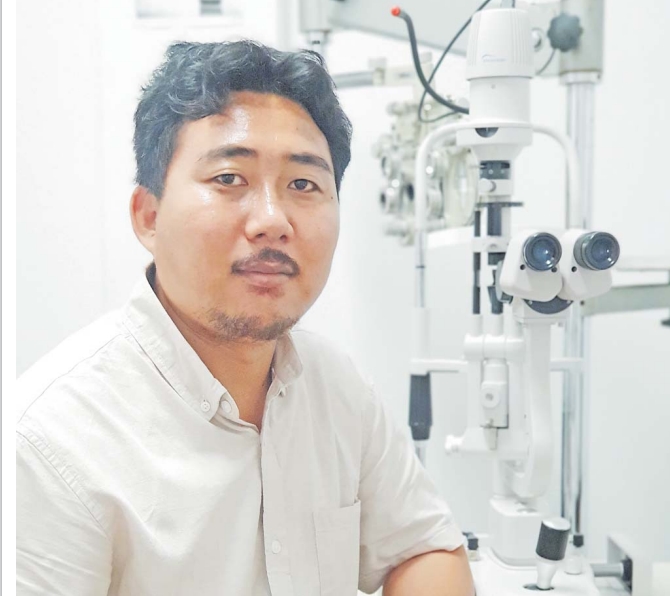MYOPIA, or short-sightedness, is a refractive error where distant objects appear blurred while near objects are seen clearly. This occurs when the eyeball is too long or the cornea is too curved, causing light rays to focus in front of the retina instead of directly on it.
Prevalence in Fiji
Globally, myopia rates are rising rapidly, particularly in children.
While comprehensive national data for Fiji is still limited, eye care practitioners are observing a steady increase in cases among school-aged children.
Urbanisation, increased screen exposure, reduced outdoor activity, and greater educational demands are contributing factors.
Fiji’s shift toward more digital learning and recreational screen time — especially after the COVID-19 pandemic — has further highlighted this concern.
Why Myopia matters
Myopia is more than just a need for glasses. High myopia (severe short-sightedness) increases the risk of serious eye diseases later in life, such as retinal detachment, glaucoma, and myopic macular degeneration. Detecting and managing myopia early in childhood is crucial to reduce these long-term risks.
Slowing Myopia progression
International research has shown that we can slow down the progression of myopia in children through targeted strategies:
Increased outdoor time — Spending at least 2 hours a day outdoors has been shown to protect against myopia onset and slow progression. Exposure to natural light stimulates healthy eye development.
Balanced near work — Children should follow the ’20-20-20 rule’: every 20 minutes of reading or screen use, take a 20-second break to look at something 20 feet away.
Myopia control spectacle lenses — Specially designed lenses can alter peripheral focus and slow eye elongation.
Orthokeratology (Ortho-K) — Special contact lenses worn overnight reshape the cornea temporarily, correcting vision during the day and slowing progression.
Low-dose Atropine eye drops — Prescribed under professional supervision, these have proven effective in reducing myopia progression in many children.
Preventing Myopia in the first place
While genetics play a role, lifestyle habits greatly influence whether a child becomes myopic.
Parents can:
n Encourage outdoor play every day.
n Limit recreational screen time.
n Ensure good lighting during reading or homework.
n Promote regular breaks from close work.
Treatment options in Fiji
For children already diagnosed with myopia, treatment options available locally include prescription glasses and low-dose atropine therapy.
The key is early detection — annual eye examinations for school-aged children are essential.
A call to action for parents and schools
Schools can play a role by integrating outdoor activities into the curriculum and encouraging safe screen use. Parents should prioritise regular eye checks, especially if there is a family history of myopia.
Myopia is a manageable condition, but the earlier we act, the better the long-term outcomes for our children’s vision and eye health. By making small but consistent changes, we can protect the eyesight of the next generation in Fiji.



